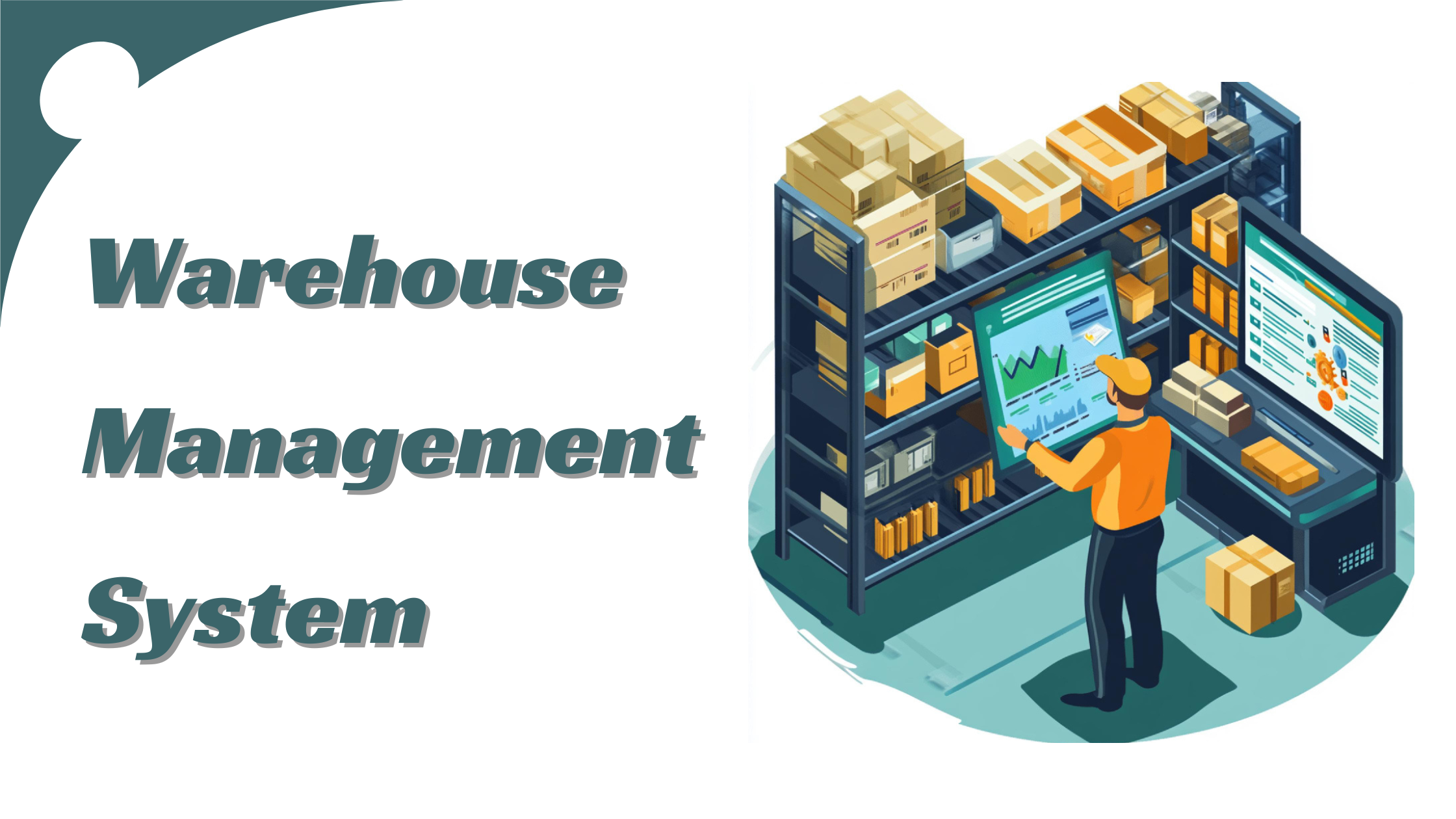Warehouse Management System: The Essential Logistics Technology for Modern Businesses
- 1 What is a Warehouse Management System?
- 2 The Growing Need for Logistics Technology
- 3 Benefits of Implementing a Warehouse Management System
- 3.1 1. Enhanced Inventory Accuracy
- 3.2 2. Optimized Warehouse Space Utilization
- 3.3 3. Improved Order Fulfillment Efficiency
- 3.4 4. Reduced Labor Costs
- 3.5 5. Improved Customer Satisfaction
- 3.6 6. Scalability and Flexibility
- 4 Cloud-Based WMS Software: A Game-Changer for Modern Warehousing
- 4.1 1. Lower Upfront Costs
- 4.2 2. Faster Implementation
- 4.3 3. Real-Time Data Access
- 4.4 4. Automatic Updates and Maintenance
- 4.5 5. Improved Security and Data Backup
- 4.6 6. Integration with Other Systems
- 5 How to Choose the Right Warehouse Management System
- 5.1 1. Cloud-Based vs. On-Premises
- 5.2 2. Ease of Integration
- 5.3 3. Scalability
- 5.4 4. Vendor Support and Reputation
- 5.5 5. Cost
- 6 Conclusion
What is a Warehouse Management System?
A Warehouse Management System is a software solution that helps businesses control and manage day-to-day warehouse operations. A WMS provides comprehensive visibility and control over warehouse activities, from tracking inventory levels to managing stock locations and order fulfilment. It can handle everything from inventory management, picking and packing processes, shipping, and receiving to labour management, ensuring that resources are utilized efficiently.
Traditional WMS software was typically installed on-premises, requiring significant upfront investment in hardware and IT infrastructure. However, with the evolution of cloud-based WMS software, companies can now access more agile, cost-effective solutions that can scale with their needs.
The Growing Need for Logistics Technology
In the modern business environment, the demands on logistics and supply chain management are greater than ever. E-commerce, just-in-time delivery models, and heightened consumer expectations for fast, accurate shipping have pressured companies to invest in logistics technology like Warehouse Management Systems.
For many companies, managing a warehouse is no longer just about storing goods; it’s about managing an intricate web of supply chains, real-time inventory levels, and distribution channels. As the supply chain becomes increasingly complex, so does the need for advanced warehouse management solutions. This is where a Warehouse Management System becomes invaluable, allowing businesses to track and manage inventory with precision, speed, and efficiency.
Benefits of Implementing a Warehouse Management System
1. Enhanced Inventory Accuracy
One of the key advantages of a Warehouse Management System is the improvement in inventory accuracy. A WMS tracks every item in your warehouse in real time, ensuring that inventory levels are always accurate. This eliminates the common problems of overstocking or understocking, which can lead to increased carrying costs of stockouts.
With real-time data at their fingertips, businesses can make more informed decisions and ensure they have the right amount of stock at the right time.
2. Optimized Warehouse Space Utilization
A Warehouse Management System helps businesses maximize their warehouse space by determining the best location for storing items based on size, weight, and turnover rates. This intelligent space allocation reduces the time spent searching for items and increases the efficiency of the picking process.
Moreover, cloud-based WMS software can dynamically adjust to changes in inventory levels, further optimizing space utilization without manual intervention.
3. Improved Order Fulfillment Efficiency
In today’s competitive business environment, efficient order fulfilment is essential for customer satisfaction. A Warehouse Management System streamlines the picking, packing, and shipping process, reducing the time it takes to fulfil orders. Some WMS solutions integrate with automation technologies like robotic picking systems, further enhancing fulfilment speed and accuracy.
With cloud-based WMS software, businesses can track the entire order fulfilment process from anywhere worldwide, ensuring no shipping bottlenecks or delays.
4. Reduced Labor Costs
Labour is one of the highest costs in warehouse operations. A Warehouse Management System can help reduce labour costs by automating many time-consuming processes, such as inventory counting, order picking, and cycle counting.
Additionally, a WMS can track employee performance, helping businesses identify inefficiencies and better allocate resources. With the help of cloud-based WMS software, companies can monitor their operations remotely and ensure minimal labour costs without sacrificing productivity.
5. Improved Customer Satisfaction
Accurate inventory management and efficient order fulfilment lead to fewer errors, faster shipping times, and improved customer satisfaction. A Warehouse Management System ensures that orders are fulfilled correctly and promptly, reducing the chances of customer complaints or returns.
With cloud-based WMS software, businesses can provide customers with real-time tracking information, giving them greater visibility of their orders and enhancing their overall experience.
6. Scalability and Flexibility
As businesses grow, their warehouse operations need to scale accordingly. Traditional on-premises WMS solutions can be costly and time-consuming to upgrade. However, cloud-based WMS software offers the scalability and flexibility required to grow seamlessly with your business.
Cloud solutions allow businesses to add users, increase storage capacity, and integrate with new technologies without expensive infrastructure upgrades. Additionally, cloud-based WMS software can be accessed from any device with an internet connection, allowing businesses to manage their warehouse operations from anywhere.
Cloud-Based WMS Software: A Game-Changer for Modern Warehousing
The transition from on-premises systems to cloud-based WMS software represents a significant shift in how businesses manage their warehouses. Cloud-based solutions offer numerous advantages over traditional systems, including reduced upfront costs, greater flexibility, and improved scalability.
1. Lower Upfront Costs
One of the most significant benefits of cloud-based WMS software is the reduced upfront cost. Unlike on-premises solutions, which require expensive hardware and IT infrastructure, cloud-based systems are hosted on the provider’s servers. This means businesses can avoid the high initial investment and pay for the system on a subscription basis, making it more affordable for small and medium-sized enterprises.
2. Faster Implementation
Implementing a traditional WMS can take months, often requiring significant customization and integration with existing systems. However, cloud-based WMS software can be up and running in weeks. The system is pre-configured and can be easily integrated with other cloud-based tools, such as Enterprise Resource Planning (ERP) or Customer Relationship Management (CRM) systems.
3. Real-Time Data Access
With cloud-based WMS software, businesses can access real-time data from anywhere. This level of visibility is essential for companies with multiple warehouse locations or those that manage a global supply chain. Managers can monitor inventory levels, track shipments, and make decisions based on real-time information, allowing for more agile and responsive warehouse operations.
4. Automatic Updates and Maintenance
Unlike traditional systems, where businesses are responsible for maintaining and updating the software, the provider automatically updates cloud-based WMS software. This ensures that companies can access the latest features and security enhancements without worrying about system downtime or expensive upgrades.
5. Improved Security and Data Backup
Data security is a critical concern for businesses of all sizes. Cloud-based WMS software providers invest heavily in securing their systems, offering businesses greater peace of mind. Data is stored securely in the cloud and is backed up regularly, ensuring that valuable information is never lost. Businesses can quickly recover data and resume operations with minimal disaster or system failure disruption.
6. Integration with Other Systems
Cloud-based WMS software can easily integrate with other cloud-based business tools like ERP, CRM, and transportation management systems (TMS). This seamless integration allows businesses to automate many processes and gain a more holistic view of their supply chain, from order placement to delivery.
How to Choose the Right Warehouse Management System
Selecting the right warehouse management system is critical to ensure your business can meet its operational needs and scale for future growth. Here are some factors to consider when choosing between different WMS solutions:
1. Cloud-Based vs. On-Premises
While traditional on-premises systems offer a high level of customization, cloud-based WMS software is more scalable, cost-effective, and accessible. Consider whether your business needs the flexibility and remote access cloud solutions provide or if an on-premises system is better suited to your operational requirements.
2. Ease of Integration
Ensure the WMS can integrate with your existing systems, such as your ERP, CRM, or e-commerce platform. Cloud-based WMS software typically offers better integration capabilities, allowing you to streamline your entire supply chain and improve operational efficiency.
3. Scalability
As your business grows, your WMS should be able to scale with it. Cloud-based WMS software allows you to easily add new users, locations, and storage capacity as needed, making it an ideal choice for businesses planning for growth.
4. Vendor Support and Reputation
Choosing a WMS provider with a strong reputation and excellent customer support is essential. Look for vendors that offer 24/7 support, comprehensive training, and a proven track record of helping businesses successfully implement their systems.
5. Cost
While the cost is always a consideration, it’s essential to consider the total cost of ownership, including maintenance, updates, and integration. Cloud-based WMS software is typically more affordable upfront, but ensure you understand the ongoing subscription costs and any additional fees for integrations or support.
Conclusion
In an era where speed, accuracy, and efficiency are paramount, adopting a Warehouse Management System is no longer optional for businesses looking to stay competitive. By implementing a WMS, companies can streamline their warehouse operations, reduce costs, and enhance customer satisfaction. With the benefits of cloud-based WMS software, companies can enjoy real-time data access, improved scalability, and lower upfront costs, making managing their logistics and supply chain operations easier than ever.
Whether you’re a small business or a large enterprise, investing in a Warehouse Management System is a critical step in optimizing your operations and positioning your company for long-term success in the modern business landscape.
















